by Jenny Rose | Dec 9, 2023 | A Flourishing Woman, Creativity
Turning and turning in the widening gyre
The falcon cannot hear the falconer;
Things fall apart; the centre cannot hold.
–From “The Second Coming” by W.B. Yeats
The line “the centre cannot hold,” has been running through my mind for several weeks, through all the time I’ve been sick with COVID and whatever nasty virus followed in its wake, and my slow recovery. “The centre cannot hold.” I found a quiet moment and looked it up. I knew it was poetry, but I couldn’t remember who wrote it or what the poem was. Thank you, Google!
W.B. Yeats, of course.
I suppose it’s a common experience to feel we’ve lost our center, our groundedness, when someone significant in our life dies, as my mother just has. I’ve fought against the feeling because over the years I’ve worked so hard to individuate from my mother, to reclaim my right to center my life around something other than her. If she was not the center of my life, why do I feel things have fallen apart since she died in August?

Photo by NASA on Unsplash
Did I fail to reclaim my power, define myself and my value apart from our relationship? Has all my work been for nothing? Are my healing and growth an illusion?
I have been afraid of answering these questions.
When I reread the first three lines of the poem, I first imagined myself as the falconer and the falcon as … my soul? My joy? My wisest self? My intuition? All those and none of those, exactly. The falcon seemed like a piece of myself I lost a long, long time ago when I was child, a piece I struggled through many years and miles to find and reclaim, and now is lost again. It can’t hear me, and I can’t hear it. It feels unbearable. My center didn’t hold. Why didn’t it hold? Did I do something wrong? How do I call it back to me?
And I want to call it back, not haul it back by its jesses. In fact, why is the falcon restrained at all? If it’s truly mine and we belong together, why is it leashed? The idea disturbs me. I want it to be free. I’ve worked too long and hard for my own freedom to relish restraining any other creature. I note I assume the falcon is leashed. The poem doesn’t explicitly say so. Interesting.
Maybe my assumption of leash and jesses reflects all the ways I’ve restrained myself. As a child I internalized restraint. I had to. Everyone else felt free to throw self-control to the winds. Is my feeling of my center not holding asking me to release myself further? Is it time for deeper faith and trust in myself?
As I typed those three lines onto the page to begin this post, I imagined another picture in which my mother was the falconer and I the falcon. She no longer holds the leash. I am free. I have flown away from the only center I was allowed to have and now I’m overwhelmed by my freedom. I don’t know how to be wild. I don’t know how to live without the restraining leather jesses around my slender legs. What if I can’t? What if I perish? Must I find a new falconer to hold the end of my leash? What if my freedom is a mistake and I’m not fit to be free? What if I’ve lost the ability to fly free?
Ugh. Goosebumps.
Don’t get carried away, I say to myself. Slow down. We’re talking about emotional freedom versus physical freedom. You’ve been flying in an ever-widening gyre for years.
What’s changed is that leash, woven of blood and bone and love, woven of years and empathy and need, guilt and shame and obligation, too strong to ever be severed … except, it turns out, by Death.
What do we center around?

Photo by Bryan Goff on Unsplash
It changes, doesn’t it? In my first 20 years I centered around my family of origin. When I was in my 20s and beyond I centered around a man and my children. Work was in there, too. And my family of origin, particularly my mother, who was not pleased to be sharing the center. The proverbial 3-ring circus. It went on like that until my children emancipated and, to be honest, for some time after. Then, as they slowly faded out of my center, being far away and engrossed in their own lives, I centered around some man (but not the same one; I’m a slow learner) and my mother. Slowly, writing began to nudge for a place in the center as well.
This created real problems. Mom could never tolerate sharing. I was used to her competition with the kids and whatever man I was involved with but the writing would have created a real threat, so I hid it. The more I hid it, kept it inviolate and safe from outside sabotage, the more I centered around it, and the more I centered around it the more threatened she felt, though I’m not sure her reaction was conscious and she had no idea what she was fighting against. She just knew she didn’t have all of me anymore.
She was right to feel threatened, because writing eventually tore me away from her physically and geographically, a thing that had never happened before and a last betrayal she never forgave.
In the stresses and strains of the last couple of years, I lost writing out of my center. Oh, I still did it. I blogged and serial published. I journaled. But as Mom’s health and sanity crumbled, she became my center once again, this time to the exclusion of everything else. Work (generally part of the center for all of us) competed, keeping me sane, physically fit, and anchoring me into a community of friends, but Mom once again became the primary gravitational pull in my center. My days and nights were full of her. I had less and less respite and the intensity increased daily, winding around my life more and more tightly, and then …
She died. In the middle of the night, a night in which I lay awake in Maine while my brother sat vigil with her halfway across the country in Colorado.
When I write it all out like this, I can understand why I’ve felt so dazed. I can feel some grace for myself.
The one thing that’s always been in the center is gone.
“The centre cannot hold …”
Being too old to have any desire to put a man back in the center (been there, done that), and loving my job while realizing it’s not big enough to define me, I turn once again to the truest, most joyful, wildest part of my life: writing.
And that’s scary. If I let writing take all the space, time and energy in the center, what will happen? I don’t even make money with it!
I make joy with it instead. Joy, connection, contribution, authenticity. Writing is not a black hole of failure. It does meet my needs. When I write, I actually feel good enough and sometimes even better than that! No wonder I feel bewildered.
As I write this, it occurs to me for the first time to not only allow things to fall apart, but to participate actively in the falling away and, falling down. To dance in the ruins, even as I weep. I’m reminded of a Rumi quote:
“Dance, when you’re broken open. Dance, if you’ve torn the bandage off. Dance in the middle of the fighting. Dance in your blood. Dance when you’re perfectly free.”

Photo by David Hofmann on Unsplash
Things fell apart. The center did not hold. Change, in other words. Life. Which is to say Death.
So, an unexpected ending to this post. Things are falling apart. I’m ready to stop trying to hold them together. It’s time to let go. Mom already has. Now it’s my turn. What lives in our center changes as we change. It’s time now for me to choose my center, choose it freely without guilt or shame.
Sometimes things fall apart and the center cannot hold.
So we find a new one.
Questions:
- What’s in your center?
- If you were free to choose your center, what would you chose?
- How many things compete for your center? Could you reduce the gravitational pull of your center?
- If your life changed in some dramatic way and you were forced to find a new center, how would you go about doing that?
- Is your center all about others, or do you have something there for yourself, too?
Leave a comment below! To read my fiction, serially published free every week, go here: 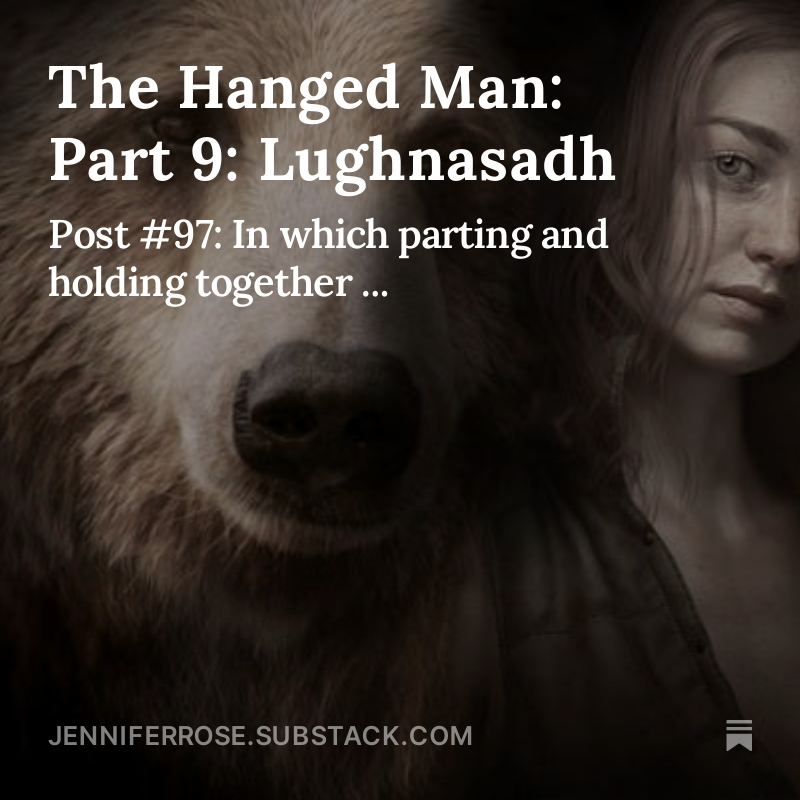
by Jenny Rose | Aug 26, 2023 | A Flourishing Woman, The Journey
Two weeks ago my 87-year-old demented mother fell in her memory care unit and broke a hip for the second time in less than a year. Eight days later she died in a hospital under the care of Hospice, my brother at her side.
Until I sat down to write this, I was afraid I had lost my words, lost the need to write them, lost the ability to form them into meaning. But I haven’t. I’m still a writer. This remains. That’s a relief.
Oh, I’ve been writing. Lists. Notes. An obituary. Texts. Updates to family and friends. Daily journaling. But it hasn’t been creative writing. It hasn’t been this blog, or my fiction. These last two weeks have passed by, the first in a blur of pity and anguish, and the second in numb relief glazed with exhaustion, and I have not posted or published. I haven’t kept track of the days; they spill into one another, as the days and nights blended together while my mother lay dying and we waited.
For a time words have simply been inadequate to relieve the pressure of my feelings in any organized or coherent way. They flew away from me, leaving a series of kaleidoscopic impressions, sensual details so vivid they frightened me with their power.
While my mother lay dying I reread my childhood copy of The Wind in the Willows by Kenneth Graham. Reading has also largely failed to sustain me during this time. I find myself unable to focus. I read a paragraph or two, and then realize I’ve been sitting staring into space, out the window or into the garden, not hearing, not seeing, not even thinking. Just sitting. But I needed a companion for the night watches, something comforting and familiar. Something innocent.
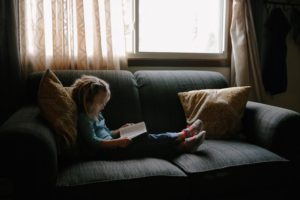
Photo by Josh Applegate on Unsplash
The fan in my window purred during those hours, blowing in cool night air and an occasional moth or mosquito. Every night, when I go to bed, I light a tea light in a candle lantern. When calls or texts reached me, I knew when I opened my eyes if it was before midnight or after, according to whether the candle still burned. Propped up on pillows, glasses on, my small bedside lamp alight, I spoke to Mom’s facility staff, emergency department doctors and nurses. I texted with my family. I read, the well-remembered illustrations making me smile as I communed with Rat, Mole, Badger, and the ridiculous Toad, finding respite for a few minutes before turning off the light and lying awake in the dark room, listening to the fan, feeling my heart beat, resting, breathing, waiting.
While my mother lay dying and after, I’ve stained wooden pallets. My partner and I are building a 3-bin compost system against the back yard fence. We set out sawhorses. I found an old brush, a rag, a stirring stick. We bought stain. I lay a pallet on the sawhorses, brush away dirt and debris, and paint every surface. The raw wood soaks in the oil-based stain, a rich brown color. The brush is more and more frazzled. I’m sloppier than I would be if painting a wall. The pallets are splintery. Some of the boards are split or loose. I bend over, the sun hot on the back of my neck and my bare arms. Mosquitos bite me. Stain drips between the boards as I brush their edges, dappling the sawhorses, falling onto the filthy old cream-colored jeans I’ve been wearing all summer in the garden, and onto my worn-out sneakers, used only for outdoor work now. As I maneuver between the boards, stain smears the skin of my hands and wrists. I kept the phone close, in a patch of shade.
This is the only sustained work I’ve been able to do. Now and then I wash a few dishes. I’ve done a couple loads of laundry. I go out into the garden, note the trimming, pruning, composting, mowing waiting to be done, and turn away. It all feels like too much. I don’t know where to start. It’s impossible to open the garden shed, get the tools, wheel out the wheelbarrow.
But the pallets. I can do that. It’s a simple task, direct. I don’t need to make any choices. Each side takes fifteen or twenty minutes. When I’ve finished a side, I wrap the brush in an old plastic bag, cover the can loosely, let the pallet dry an hour and a half in the sun. Then I turn it over and begin again. Two coats each side. One side after another.

Photo by Manuel Barroso Parejo on Unsplash
The smell of stain. The prickly feeling of intense sun on my skin. I think about compost, recycling, breaking down life to sustain new life. I think of ashes to ashes and dust to dust. I wonder if I’ll ever use the compost bins without thinking of Mom. I wonder who names the colors of stain and paint. I chose ‘Canyon Brown’ for this project. I vaguely hear birds, cars passing by. Small groups of women walk by in clumps, hospital employees on their lunch break, talking about families, gardens, school starting, hospital gossip. I should be at work, on that same campus, just a ten-minute walk away. I should be, but I’m not. I’m here, staining pallets, waiting for Mom to die and then on bereavement leave.
Am I bereaved? How would I know? I wonder why I don’t care enough to follow the thought. I let it drift away.
I decide I want to make bread. I don’t eat bread often, so rarely make it any more. But my rosemary is bushy and ready to be harvested, and someone brought fresh home-grown garlic into work to share before … before all this. So I make a sponge, stirring together milk, a little sugar, yeast, water. I chop fresh rosemary and garlic, very fine. I take flour out of the freezer and let it warm. The dough is heavy under my hands, sticky at first and gradually becoming supple and smooth. The earthy smells of garlic and rosemary vanquish the smell of stain in my nostrils. I turn the dough, kneading. The timer ticks off seconds and minutes. I clean the bowl, grease it, use a linen towel to cover it for rising. I put it in the oven for safe keeping, because the cats are likely to lie on it or step in it, or nibble at it if I leave it out. The bread, like the pallets, is a project in stages. I don’t have to focus on any one step for more than a few minutes. I move between the kitchen and the back yard with my phone, not thinking, not planning, just taking the next step, and the next. I can’t remember times, so I write them down. About 90 minutes for the stain to dry. An hour for the bread to rise. Another 90 minutes for the pallet to dry. Another hour for the shaped loaves to rise. Another 90 minutes. An hour for baking.
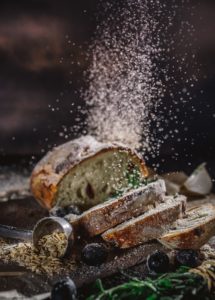
Photo by Helena Yankovska on Unsplash
At the end of the day, I have two enormous round loaves of bread to cool, slice, and put in the freezer. This batch will last me for a year. I have finished another pallet. I leave it on the sawhorses to dry overnight. My stained hands smell like garlic.
I haven’t cried since the last night call, my brother telling me Mom was gone. Perhaps I cried all my tears before she went. I receive condolences with all the grace I can muster. People talk to me about God and heaven. They talk to me about Mom. They talk to me about their own experiences of death. I try to be gracious. I try to look like I’m listening, like I’m there. With my brother and sons, my partner, I can be real. The faces of my friends comfort me. They don’t need anything from me. They don’t ask for anything. I can see their concern, their love for me, their sorrow. They hug me, and smile. They talk to me about small things, the daily things I’ve lost track of – family, friends, outings, work. I pick up a friend’s daughter and feel almost normal, doing an ordinary thing, a manageable task I cannot fail.
I realize part of my feeling of unreality is rooted in a loss of identity. I catch sight of myself in the bathroom mirror and pause. I rarely look at myself in the mirror. This woman, who is she? She isn’t the disappointing daughter any more. She can’t be, if there’s no mother to disappoint. What else is she? Who else is she? I look into my own eyes and feel no shame, no guilt. Did Mom take them with her? How will I navigate my life without them on my shoulders, without the knowledge that Mom is alone, suffering, needing? For fifty years I was at her side, day and night, year after year, ineffectual, helpless to fix or heal her physical pain, her dysfunction. Feeling my failure, my powerlessness, knowing I more often made it worse than better as time went on, even though she clung closer and closer to me as she aged. She could not release me and I almost waited too long to release myself.
But the geographical distance I put between us brought no real release. She still suffered. She declined, grew confused. Her body aged and began to run down. She was just as lonely without me as she was with me, just as emotionally remote, just as relentlessly needy. She cut herself off from me, but I still carried her. Internally, I still orbited around her. I still agonized for her.
I still loved her. I always loved her. I accepted she could not find me lovable, but it made no difference. She was my mother, and I loved her. All I ever wanted was for her to be well, and happy, but I could not make it so, and in her eyes it was my responsibility to fill her need. Indeed, she told me long ago her physical pain started with her pregnancy with me. I accepted the blame, and was heartbroken, and have tried desperately to make up for it ever since.

Photo by Nicole Mason on Unsplash
Now Death has come to stop her suffering. Has mine stopped, too? I don’t know. I’m too numb to tell. But I feel different. I feel … released. I prayed for her release and freedom, not mine, but perhaps they were linked. Many times a day I think of her, hear her voice in my head, and I realize with a painful clench of my heart she’s gone. It’s over. I can’t humiliate her anymore because of what I wear, how my hair looks, what I do, who I sleep with, or, most of all, what I write. She’s moved beyond humiliation. I can’t fail her anymore. And that’s a soaring, joyful, unbelievable thought. I can’t fail her anymore.
I wonder if I’ll finally feel good enough, if I’ll do a good enough job, live a good enough life. Might I simply enjoy my small talents, my joyful work, my community, my garden? Might I immerse myself in the loveliness of life without the gnawing guilt of knowing I’m happy when she’s not, I’m companioned when she’s not, I’m relaxed and rested and peaceful when she’s not, I’m laughing when she’s not?
The last couple of times I spoke to Mom, I told her it was okay to rest now, she could let go, be at peace. We told her her loved ones and animals were well and happy, and she could relax.
I told her, and I meant it. Was I telling myself, too?
She could not release me, yet I am released. Did Death break the chains when he gathered her in? Or now, at last, have I released myself, now that she’s moved entirely out of my power and knowledge?
As I write this, it’s Wednesday afternoon. I have finished another pallet. I have written. I have sat in the sun, read a paragraph or two at a time of an old Edna Ferber novel, rested my eyes on the garden. The lily stems are turning dry and brown, as are the leaves. Sunflowers bloom. The sun is hot. The phone has been sitting on my kitchen table all morning, silent, as I go in and out. I have balanced my checking account, scheduled a private swim lesson in a home pool, ironed a tablecloth and three napkins. Tomorrow I go back to work.
A new page of my life has turned. I can’t read it yet. It’s enough to sit with it in my lap, letting my gaze wander over blue sky and afternoon clouds, the garden, our old cars, the worn wooden boards of the porch, the bruise on my left knee, the mosquito bites on my right arm, the smears of stain on my hands. It’s too bright in the sun to read this new page, too hot, too much effort. I’ll read it later.
I dare to be at peace.
Daughter’s Dream (July 2014)
I dreamt I carried my mother.
The car had slipped out of her control
with a blind will of its own,
and I thought
I knew she shouldn’t be driving.
We landed in water.
I swam to her and held her in my arms.
Then the water was gone.
I carried my mother,
but she left my embrace,
slipping free of her embattled flesh.
Irrevocably, I felt her go.
I was alone.
I carried the vacant body of my mother.
Empty beds stood all around me
but the sheets were disordered and dank,
Smeared with shit.
I carried the vacant body of my mother.
There was no clean place to lay her down.
I carried the vacant body of my mother,
seeking to slip into my own freedom,
seeking absolution.
To read my fiction, serially published free every week, go here: 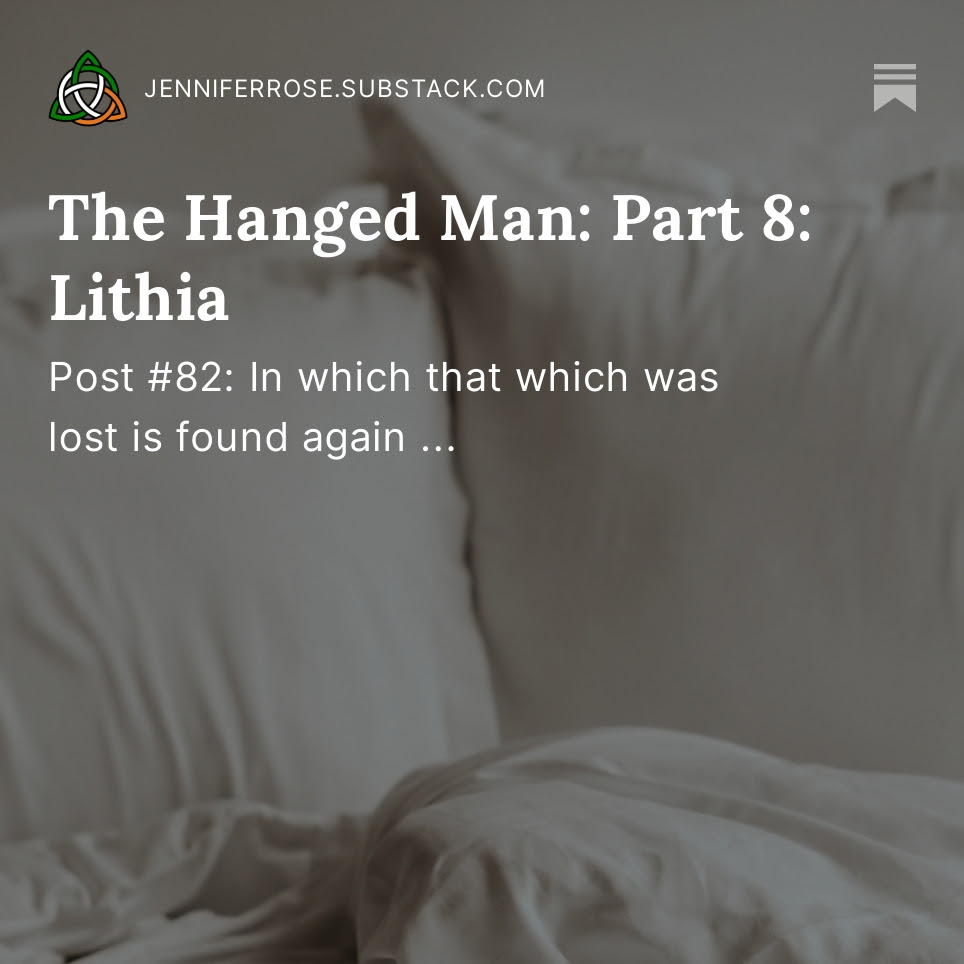
by Jenny Rose | Mar 11, 2023 | Emotional Intelligence, Feelings
In January, my brother and I traveled to Colorado to transition our mother into memory care.
As some of you know and many can imagine, a journey into dementia is an unsettling one on good days, by which I mean relatively calm days. On bad days, days of panic and confusion, days of anger and restlessness, it’s heartbreaking.
One of the greatest challenges for me is the chaos of my jostling feelings, all mobbed together and struggling for attention. I can’t feel everything at once, and I can’t focus on one thing at a time. One minute I’m entirely relieved because I know she’s in a safe, protected environment being well cared for, which has not been the case for the last ten years. Knowing she was living alone, driving, walking her dogs, and slowly losing her ability to function and manage her own life and I could do nothing about it took a daily toll.

Photo by Cristian Newman on Unsplash
The next minute empathy and compassion overwhelm me and I’m reminding myself to maintain boundaries. She is not me. I am not her. My attention needs to be on taking care of my own feelings. If I could have effectively helped and supported her, I would have started doing it when I was five years old. I never found a way because there is no way.
Then I’m angry. Angry because I tried to avoid this particular outcome. Angry because she wouldn’t help herself when she had the ability to. Angry because I’m still in the position of parenting and taking care of my parent, which has always been the case. Angry about her suffering and confusion, and mine.
At the end of every conversation we have on the phone, I tell her I love her. It’s true. I have always loved her, but was not allowed to say so. She would ignore such a statement, or dispute it. She says it back to me now. It always makes me a little bit mad. It was a thing she would not say outright before. She’d sign herself “Love, Mom,” but she wouldn’t say it. She’s not a person who offers or accepts any kind of touch. Does she really love me, or is she merely participating in the familiar ritual of the exchange? Did she feel it all along but couldn’t say it?
Even before her dementia onset, Mom wouldn’t have answered these questions. I will never know.
I’m also sad. It’s not a sobbing, tearing grief, but a gentle, diffuse one, like watching a teabag steep in hot water and gradually turn it into tea. I don’t feel it all the time. There’s resignation in it, and acceptance, and surrender.
Mom is receiving palliative care under a local hospice organization. They recommended a book to me, titled The 36-Hour Day, by Mace and Rabins. I bought a copy. It was hard to read because it stirred up uncomfortable feelings, but it’s also a goldmine of information, including the latest research and standards for dementia care. It’s enormously validating. I read about specific behaviors and the stages of dementia and realize I have been struggling with Mom’s gradual disintegration for years. Nobody else saw it, so I was alone with my fears and concerns, but I knew she was slipping and I suspected this time was coming.
What I was most hoping for from the book was a script for dealing with difficult questions and conversations. I have some professional experience with dementia and am comfortable with refraining from using logic or trying to bring anyone back to reality. Mom has always believed entirely in her narratives, which often were distorted, paranoid, and inaccurate, so I have a long and painful history of managing her stories and beliefs. However, now the briefest conversation is fraught with pitfalls I don’t know how to respond to or address. I spend a lot of time on pause, frantically trying to figure out the best way to engage with her.

Photo by Quino Al on Unsplash
The book didn’t give me a script, per se. What it gave me was a simple strategy for everything: reflect and validate feelings. Not the stories (thoughts), but the feelings. Emotional intelligence strikes again.
This was good news for me because I’m highly emotionally intelligent, even in this difficult personal context. I know how to recognize, name, and manage feelings. On the other hand, it seems like so little to offer. It’s hard to provide comfort in the context of dementia. Language feels pointless. Nonverbal communication is useless over a long distance and, in this case, in person. Mom has flinched away from me too many times for me to even think about touching her. On the phone, all I have is language. Following my impulse to reassure, to explain, to provide some kind of structure, only makes things worse for both of us. I measure my effectiveness by the level of her distress, which is eerily like measuring my effectiveness by the degree to which I can please her. Even that may not be accurate. Mom’s distress has always been extreme in the face of boundaries, limitations, the word “no,” and any questioning of her particular narratives and beliefs. It’s a personality trait having nothing to do with me personally. The mere fact of her feeling confined (which is accurate) may be the root of her distress rather than anything I’m saying or doing. Or not saying or not doing.
It occurs to me feelings live inside the just-born infant. Maybe before that. Certainly, we experience feelings long before we master language. I’m realizing intellect, logic, language, can all fall away at the end of life, too, but the feelings remain. I assume our need to be heard and validated remains.
Conversation with Mom is like wandering blind through a meadow filled with rabbit holes. Dementia is at once simple and extremely complicated. I never know how she will be or what she will say next. Sometimes she sounds down and depressed. Sometimes cheerful. Sometimes calm. Once she even told me she was “content,” a word I’ve never associated with her before. Sometimes she’s anxious, sometimes angry, sometimes groggy and hardly responsive.
When we talk, I work to set aside (temporarily) my own feelings, thoughts, memories, expectations, and predictions. I ask her how she is and listen to her response, looking for the feelings. When she tells me she needs to leave there because “everybody steals,” I sidestep the stealing accusations and acknowledge it must be an uncomfortable and discouraging way to live, and I can understand why she doesn’t like it. She perseverates on this theme off and on, and I enlarge on how difficult the feeling of losing things is, how unsettling to not be able to find our possessions. After all, she’s lost her whole previous life. Her feeling of loss, of things missing, is based in reality. On the other hand, her paranoia and fear of people (including me) stealing money from her was in place long before her dementia. I was never able to persuade her they did not reflect reality. I certainly can’t do it now.
Reflecting and validating her feelings back to her feels inadequate. It even feels condescending. But there’s nothing else I can do, nothing else to say. Witnessing her feelings is all I have left.
And, after all, maybe that’s a lot. We’re not very skilled with feelings in this culture. It’s not easy to find someone who will just listen without trying to fix or solve. Perhaps great healing lies in being heard with nothing added. I hope so.
Another constant theme is one of buying a car and going shopping when we visit. When I ask her what she needs, she can’t tell me. She needs “things.” When I ask her if she’s started a list, she never has. We are not sure she can read or write anymore. I realized when we went out to move her and worked in her house she’s a shopper. She has enough clothing for three women. Her closets were filled with shoes, both old and worn and newer. She had six or seven open bottles and jars of the same products. Her cupboards were packed with supplements and vitamins for both herself and the animals, many of them outdated. As her confusion grew, it appears she self-soothed by shopping and receiving packages in the mail. So, we talk about how much fun it is to take a day and shop for this, for that. We talk about having new things, buying special gifts for ourselves. She doesn’t want to make a list and have someone else get her what she needs. She wants to go on her own and play, buy what she wants, choose what she wants. She wants to feel free, independent, and empowered to give herself that.
She cannot understand that’s no longer possible. Even if she could, the feeling of wanting what she once had would likely persist. It breaks my heart.

Photo by Gemma Chua Tran on Unsplash
I have feelings, too. I turn to journaling, to writing. I’ve tried without success to find support groups in my area; then I found a mental health professional experienced in family trauma to speak with. I talk with Mom’s hospice team regularly; having worked for hospice, I know they want to support the whole family system. I extend to myself all the gentleness, support, and patience I extend to Mom. I hold my thoughts loosely and hug my feelings. They need comfort. They need expression. I think about boundaries and regulate my empathy. I’m newly appreciative of my own freedom and independence. I look for reasons to laugh, reasons to smile. I look for ways to connect to others. I intend to learn to receive as well as I give.
As I write this, an exuberant spring wind blows outside, pushing snow off roofs, tangling our wind chimes, shaking the lilac branches with their new, hard buds. One of the cats is stretched out on my desk in the sun. My desk calendar was in his way, so he kicked it off with his back feet. A glass paperweight pins down a card for Mom, the envelope addressed and stamped. Every Monday I put a card in the mail for her. I do it for me. She does not acknowledge them or remember receiving them. I hope they’re all displayed in her room, but I don’t know. I’m not sure she can read them. I imagine a staff person or hospice team member reading them to her. I’m not sure she can connect them with me at all. But it makes me feel better to make the gesture, and I enjoy picking out cards I think she’ll like. I’ll write a couple of lines about the weather, about the moment, about spring. I’ll sign it with the word love. I’ll put it in the mailbox and raise the flag, and the mail carrier will take it in an hour or so.
Feelings are pure. Feelings are simple. It’s our thoughts about our feelings that fester, tangle, entrap us. I want to soothe uncomfortable feelings, make the pain stop, dry the tears, turn aside the rage. All my life it’s been my role to take care of Mom, fix whatever was going wrong. I still feel her emotional dependence. I still feel the responsibility to solve every problem for her.
But Mom has traveled now to a place I can’t go and she can’t come back from. She can’t follow me, clutching at my clothing, needing, wanting, pleading, demanding, rejecting. I can’t walk beside her in a way she recognizes. We have separated. I am relieved. I am absolved. I grieve for her anguish. Witnessing her feelings without taking action to assuage them is perhaps the hardest thing I’ve ever done in a lifetime of hard things in caring for her.
But I cannot fix this. Neither of us can go back. There’s only feeling our way forward.
Questions:
- What has been you experience, if any, with dementia in a loved one or family member?
- What are your thoughts and feelings about hospice care?
- What’s the hardest thing for you in supporting an elderly loved one?
- Do you worry about developing dementia yourself? Have you made a plan?
To read my fiction, serially published free every week, go here: 
by Jenny Rose | Feb 7, 2019 | A Flourishing Woman, Creativity
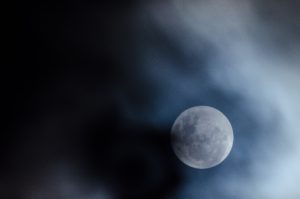
Photo by Linda Xu on Unsplash
The Storm Moon’s cradle is empty; her wild daughter delivered into the grim, pale days to whirl in crystal smoke under polished bone sky.
Heedless of secrets and scars, she weaves through ice-bound shadows, the Storm Moon’s wild daughter, in and out of blanched forests of memories, sorrows and fears beneath the drumming woodpecker. She puts her mouth to the crack between window and leaning wall and takes in air breathed too many times, wan and desiccated with furnace and stove and a thousand ashy ghosts, exhaling platinum spiderwebs of frost . . . silvery sharp feathers
and flowers of frost.
She is the icy scent of eucalyptus and peppermint, knifing through the sinus-clogging cold that is reluctant to loosen its thick clutches. She is the rich taste of chicken stew made in the ponderous red Dutch oven, its chipped white interior stained with a hundred hearty meals.

Photo by Das Sasha on Unsplash
She is the stinging slap, the bitter bone ache, the ice needle under our fingernails that thrusts us out of apathetic futility. Love is not pointless. The grim, pale days pass away. The hoary sun warms again. We have tended our souls’ graveyards long enough. Our lives await an end to our grieving.
Her skirts layer the numb ground in a frozen froth of salt and snow creased with ash and sand while she cavorts and teases, naked iron and pearl, in the arms of the wind, their mingled hair crusted with silver.
Her step echoes in the sleeping roots; trees shudder at her passing caress; far below the ice, frogs stir in their cold, muddy blankets, the green sound of spring mute and patient in their chilled throats.

Photo by Aaron Burden on Unsplash
The Storm Moon feels herself age and leaves motherhood behind, looking down as ewes labor to give birth to early lambs; as her wild daughter whirls with tempest and tumult, careless and thoughtless with youth; as we struggle with chapped hands, clumsy layers of clothing, ice-muffled pipes and feeding the insatiable maws of furnace and stove.
And this, too, shall pass. The Storm Moon shall fade into crone darkness, cradle left behind as a planter for violets. The wild maiden shall learn the secrets of womanhood, her draggled skirts unraveling and sinking beneath a green mist. The blanched forests shall warm into leafy suppleness, intoxicated with clear-running sap. Glaze of ice and frost shall soften and fall away, drop by drop, and frogs wake and release their insistent song of mate and spawn. Water shall once more run effortlessly through pipes, breath effortlessly through body, and the furnace hibernate, the fire go out.
In our souls’ graveyards, grey stones lean and weather, draped with moss and lichen. There is no clash of voices, no agony, no anguish. There is a bench in the sun, a bird on a branch and a puddle of bluets where the Storm Moon’s wild daughter trod when she passed by.

Photo by Nyana Stoica on Unsplash
All content on this site ©2019
Jennifer Rose
except where otherwise noted
















